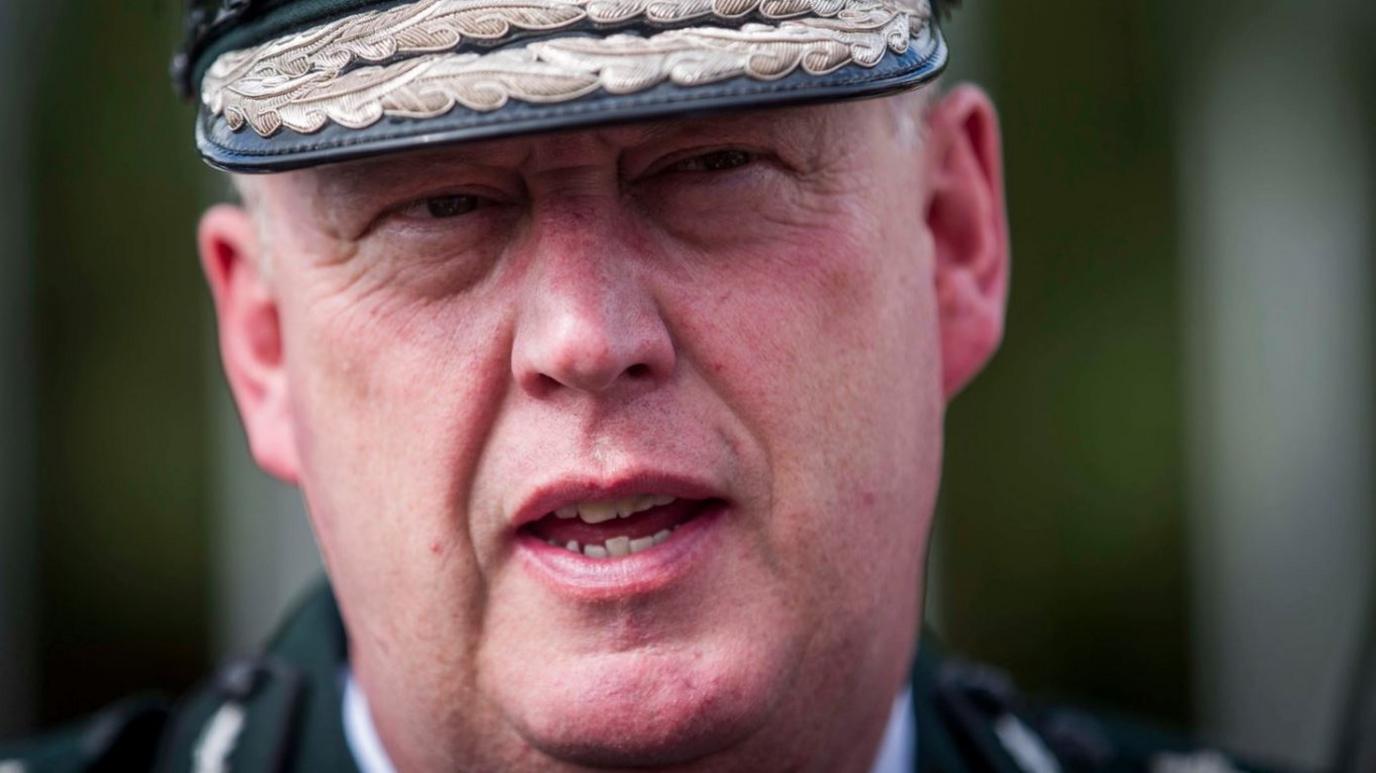New PSNI chief Simon Byrne faces a 'crash course'
- Published
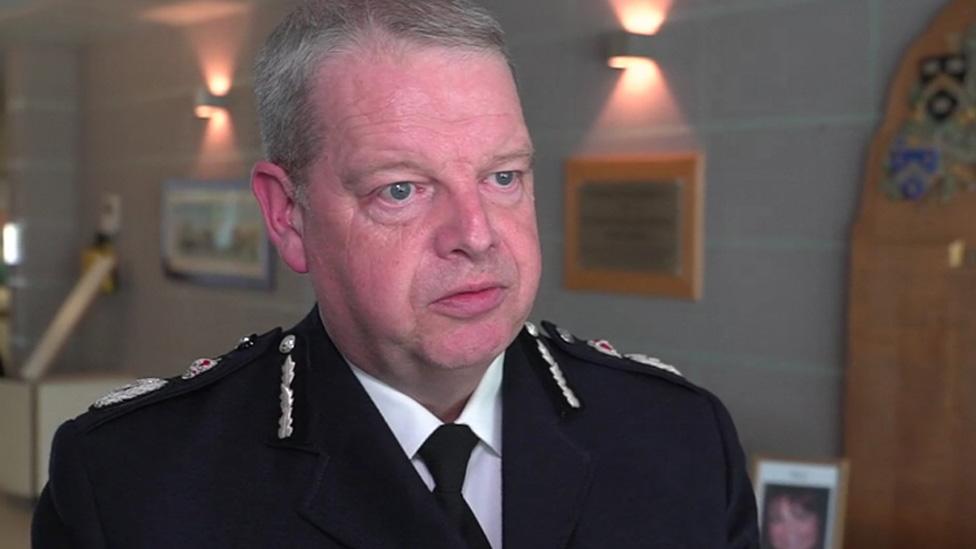
Until last year, Simon Byrne was chief constable of Cheshire Police.
Negotiations will begin next week over the start date for new PSNI boss Simon Byrne.
He could arrive in his £207,000-a-year job in time for the marching season, offering a crash course in Northern Ireland policing.
The Twelfth of July may not present the challenges of old, but there will be no shortage of tests as he looks to build his career.
He has 36 years in policing behind him - a third of it at high rank.
Mr Byrne was the only candidate who attended a familiarisation day organised by the Policing Board ahead of interviews.
He was seen as an outsider in more ways than one.
But the 56 year old had, arguably, the strongest CV of the four who applied to succeed George Hamilton, who retires at the end of June.
Most of his career was in Merseyside Police.
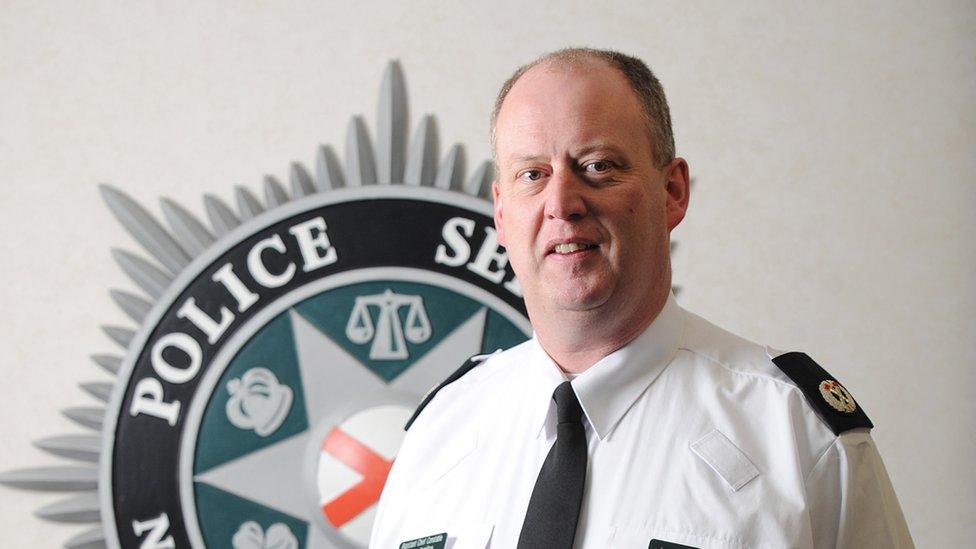
George Hamilton, the current chief constable, retires next month
He held senior positions there - and then the Metropolitan Police and Greater Manchester Police - before his appointment as chief constable of Cheshire in 2014.
That last job ended in 2017 in controversial circumstances.
He was suspended while 74 allegations of misconduct were investigated, only for him to be later exonerated on all counts.
Largely, he was accused of occasional offensive behaviour towards staff.
But a tribunal found much of what was claimed was either exaggerated or probably did not happen - the whole affair "could and should have been avoided", its report said.
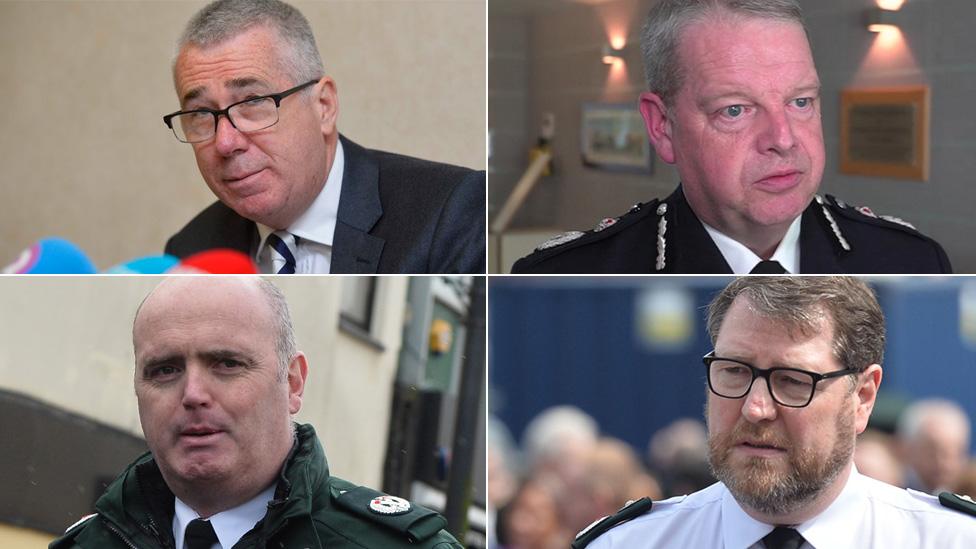
PSNI officers Steve Martin and Mark Hamilton were up against Jon Boutcher and Simon Byrne for the role
It described Mr Byrne as "a driver of high standards", with an "energetic and challenging style."
He arrives in Northern Ireland amidst warm words of encouragement from political parties which had a role in his selection.
All are eager to point out he was their unanimous choice.
So what awaits him?
Two of the biggest issues are outside his control.
The shape of Brexit may have huge implications for policing the border and the PSNI awaits political decisions around Troubles investigations.
Will they be handed over to a new Historical Investigations Unit and if so when?
Also close to the top of the pile in the in-tray is rebuilding confidence in the PSNI, particularly with the nationalist community.
Interestingly, when Mr Byrne was with the Met he looked into boosting ethnic representation by studying reforms at the PSNI which were introduced to increase Catholic recruits.
When he gets here he will discover it remains one of the priority issues.
- Published24 May 2019

- Published7 May 2019
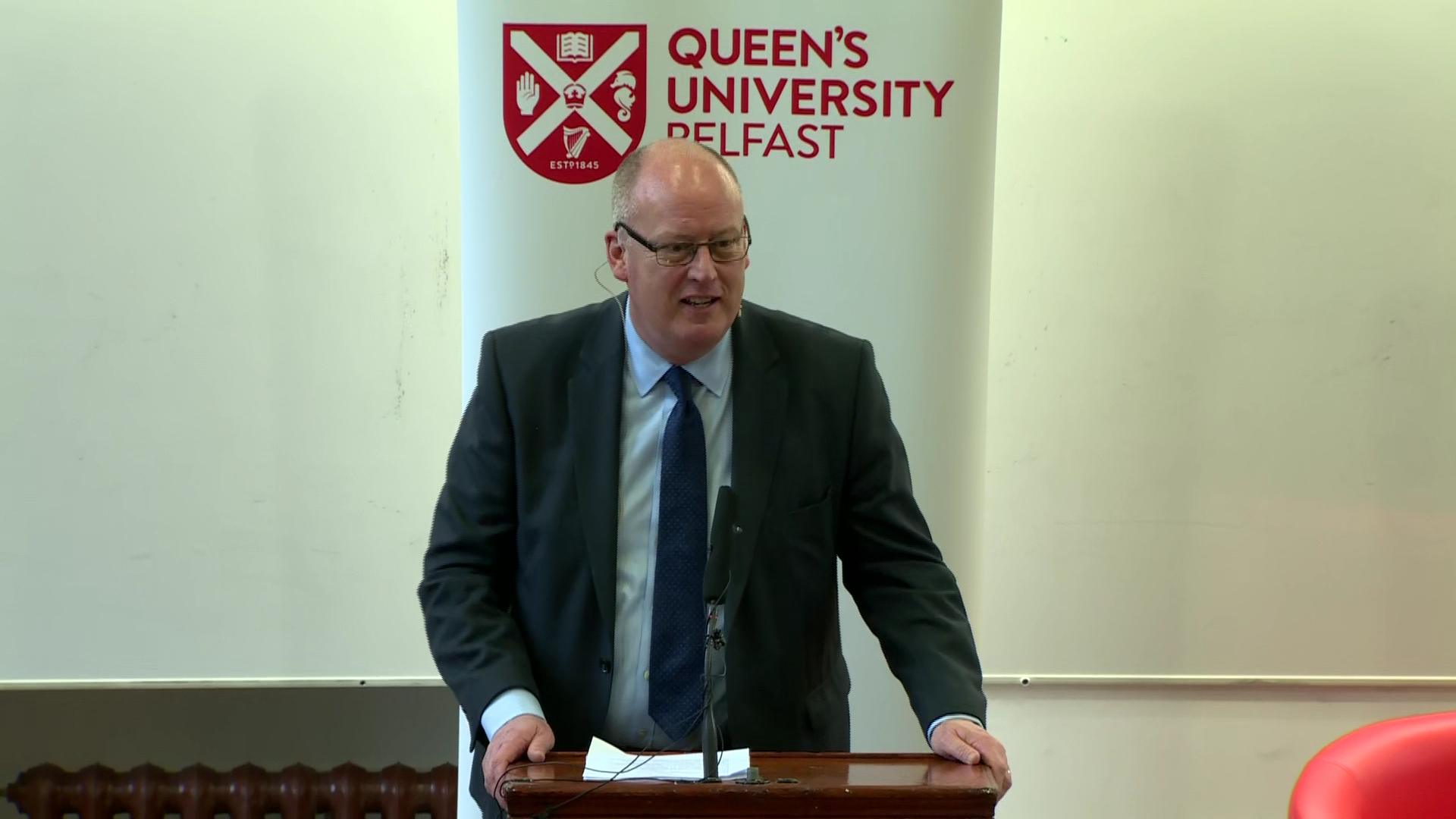
- Published28 January 2019
